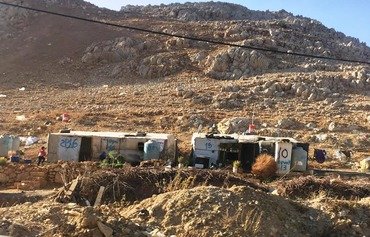The Jordanian government and international community on February 1st endorsed the Jordanian Response Platform for the Syrian Crisis (JRPSC) for the next three years.
The $7.3 billion package aims to support the wellbeing of Syrian refugees and Jordanian host communities, while building national capacity.
The plan, prepared in co-operation with UN agencies, donor countries and international organisations, was approved during the 10th meeting of the JRPSC, chaired by Prime Minister Hani al-Mulki, with Minister of Planning and International Co-operation Imad Najib Fakhoury in attendance.
"The situation in Syria and the unprecedented refugee crisis have been globally recognised as the worst humanitarian disaster the world has faced since World War II," al-Mulki said.
The ongoing fallout from the crisis poses a threat to global security, development and economic growth, he added.
"Seven years into the Syrian crisis, the prospects of an impending return to Syria for the four million displaced around the globe are still remote," he said. "Even if a peaceful solution materialises, it will take years to rebuild Syria and for Syrians to resettle."
"This means that Jordan will have to continue to bear the rising costs of the crisis and face the growing challenges to the country's social and economic fabric for 2018 and beyond," al-Mulki said.
International help needed
The international community must shoulder its responsibilities towards Jordan, as the kingdom is doing everything it can to help Syrian refugees, said Minister of State for Media Affairs and government spokesman Mohammad Momani.
"Jordan is exerting tremendous efforts for the Syrian refugees and is undertaking this mission on behalf of many countries, so it is crucial that commitments to support the kingdom be fulfilled to alleviate the burden," he said.
The kingdom has been doing its best to address the situation amid volatile regional circumstances and difficult economic conditions, Momani said, adding that "Jordan must not be left to face these challenges alone".
The huge influx of Syrian refugees has had a significant impact on Jordan's economy and infrastructure, particularly the water and energy sectors, said Musa Shteiwi, director of Jordan University's Centre for Strategic Studies.
"The unemployment rate has risen in the kingdom," he told Al-Mashareq, noting that Syrian labour is competing with Jordanian workers.
Shteiwi stressed the importance of supporting host communities and mitigating the negative repercussions on them from the influx of refugees.
"The wave of displacement also has wrought social consequences and security challenges for Jordan, necessitating that donor countries support Jordan and help it to meet the challenges," he said.
Jordan was one of the first countries to open its borders to Syrian refugees at the outbreak of the crisis in 2011, former Minister of Information Nabil Sharif told Al-Mashareq.
"Donor countries are required to continue to support Jordan," he said. "Jordan has continued to provide assistance to the refugees despite the financial difficulties and major economic challenges the kingdom is facing."

![Jordanian and international officials announce the endorsement of the Jordan Response Platform for the Syrian Crisis at a February 1st meeting chaired by Prime Minister Hani al-Mulki. [Photo courtesy of Ministry of Planning and International Co-operation]](/cnmi_am/images/2018/02/19/11465-Jordan-Syrian-refugees-600_384.jpg)





This is true. We thank the Jordanian government for taking on the burdens of Syrians who live in the Kingdom. Please provide support and activate the Commission card and give it to all.
Reply1 Comment(s)